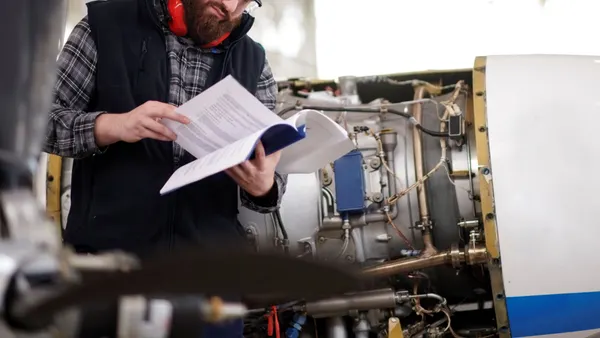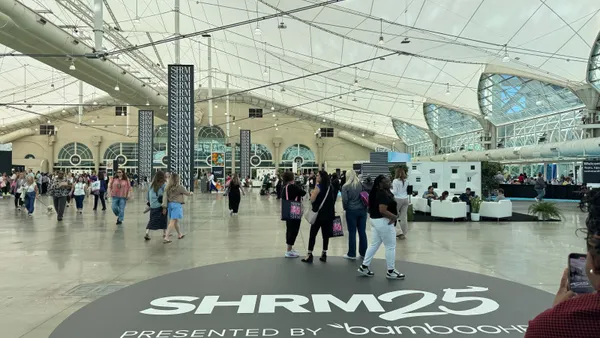Dive Brief:
- Sixty percent of Americans believe automation, robots and artificial intelligence (AI) will put jobs at risk, according to Indeed poll results. This fear crosses geographic and demographic boundaries, Indeed said, but those most afraid are those with less education, perhaps because their jobs are most at risk.
- These automation concerns could lead to policy demands, according to Indeed. Those who expressed worry tended to favor reducing legal immigration — "perhaps in the hope they won't have to compete as hard for the dwindling number of jobs that survive automation," the group said. They also favored a reduction in occupational licensing requirements and the adoption of a jobs guarantee.
- Those worried about automation, however, were no more likely to support government-provided worker training, despite experts' insistence that training will be necessary. A universal basic income also only had slightly higher support from those worried about automation.
Dive Insight:
Polls about automation fears tend to vary in their results. In Epicor Software Corporation survey results released earlier this year, a majority of workers reported that they'd welcome robot colleagues. Fifty-four percent of respondents said they believed automation could alleviate some of their repetitive and mundane tasks. And in a 2017 survey from ZipRecruiter, 60% of respondents said they think the tech job-takeover is overhyped. A third survey from The Workforce Institute at Kronos found that four in five employees think AI will make work more engaging and empowering.
While various studies say that automation will take over millions of jobs, some experts predict that tech may create more jobs than it kills. The newly created jobs, however, will likely require higher-level skills, so training will be critical.
The federal government already seems to have taken note, prioritizing apprenticeship programs. Still, pressure from workers could drive additional policy changes, as Indeed notes. "Anxiety is widespread about how automation will affect jobs. Even those who aren’t themselves at risk of losing their jobs are worried," the group said in concluding its report. "If their fears come true, political pressure to protect at-risk workers might build."












